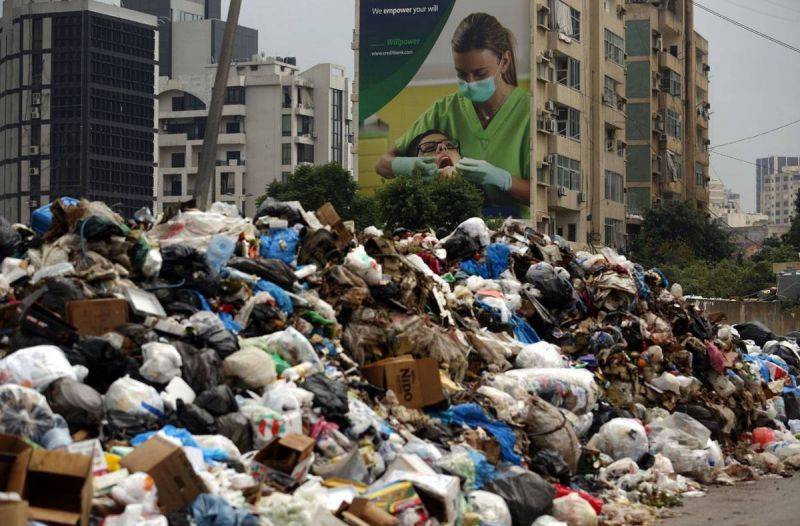
Garbage piled up on a street in Beirut. (Patrick Baz/AFP)
BEIRUT — A review of more than 18,000 contracts from 44 state administrations by government transparency watchdog Gherbal Initiative found that the top five companies received a total of $3.45 billion in government contracts between 2001 and 2020.
The top contractors – in terms of the dollar value of their contracts – identified by Gherbal were, in descencing order: Sukomi, Sukleen, Ogero, Consolidated Engineering & Trading Co., and Al-Jihad for Commerce & Contracting.
The top two companies, Sukomi and Sukleen, have both been involved in solid waste management in Beirut and Mount Lebanon, which has been touted as an emblematic case of government failure.
As of 2020, Lebanon spent over $150 per ton of solid waste, according to the Waste Management Coalition. Jordan and Syria spent only $23 and $22 dollars per ton, respectively. Still, Lebanon’s landfills are overflowing and dangerous, and waste continues to litter the streets of the capital.
The fifth largest recipient, Al-Jihad for Commerce & Contracting, has also served as a waste management contractor. Its chief executive, Jihad al-Arab, is facing sanctions by the United States government for “contributing to the breakdown of the rule of law in Lebanon,” including through alleged over-billing for waste services.
Researchers at The Policy Initiative, a local think tank, found government contracts in Lebanon are generally not more likely to run over budget compared to other countries, but there is “a subset of contracts [that are] more likely to be overspent and [have] larger cost overruns, namely those that are designed by a politically-connected design consultant.”
In other words, a relatively small number of large, politically-connected companies are disproportionately responsible for Lebanon’s overspending on contractor services.
Gherbal said only 44 out of 196 state administrations responded to their information request, despite the 2017 Right To Information law requiring state entities to comply with information requests, with few notable exceptions. The 18,000 contracts reviewed by Gherbal totaled $13.55 billion in state funds.
The semi-public utility company Electrite du Liban did not respond to the request for data, but a Gherbal spokesperson noted it might otherwise have been a top contractor.